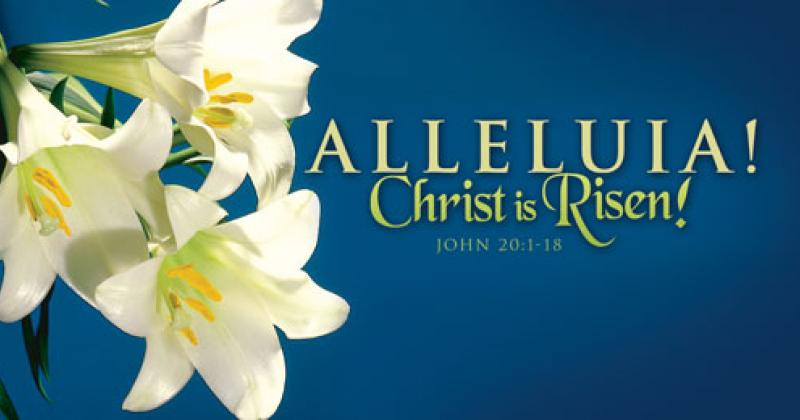Easter celebrations, this year, have a significance. They coincide with the Jubilee Year of Mercy which was proclaimed by Pope Francis and adopted by various Churches of the world. The concept of mercy has a necessity and a beauty since it is the noblest deed a human being may ever undertake. You have several models that created "treasures" out of mercy, not through transient deeds or with the intention of showing off, but rather by serving humanity through the attainment of the civilization of love and the culture of mercy. From this premise, the world recalls Albanian Mother Teresa who made distinguished landmarks in mercy through her extensive work in the poorest areas of Calcutta, India. In September 2016, the Pope of the Poor, Francis, will canonize her to serve as a renewed model for the youths in mapping out a future based on the culture of mercy and its noble significances.
The joy of Easter and of the mercy of Mother Teresa of Charity Congregation are definitely the Easter and the resurrection of the martyred sisters who fell at the elderly care home at the hands of terrorism… such terrorism that sought to mercilessly kill the nuns of mercy where four of them were killed, a priest was kidnapped, and the elderly people at the home were killed as well.
Easter this year draws us closer to the Church of the Holy Sepulcher where three, main churches will be responsible for its renovation, namely the Greek Orthodox Patriarchate, the Latin Patriarchate in cooperation with the Franciscan Custody of the Holy Land, and the Armenian Orthodox Patriarchate.
For several centuries, two Muslim families have held the keys of the Church of the Holy Sepulcher to symbolize that a holy place does not separate religions but rather unites them. The renovation work will start in a few days and last eight months or a year. But, what highlights this project mostly is the announcement about a Royal benefaction stating His Majesty King Abdullah II's provision to restore Lord Jesus’ Tomb in the Church of the Holy Sepulcher in Jerusalem at his personal expense. By doing so, His Majesty wanted to propagate a new sublime message from Jordan which states that religion implies service, cordiality, peace, humanitarian solidarity and unity to worship the one God. The Royal benefaction confirmed that "all is well''. It received wide-ranging media coverage which lauded this grand initiative, and highlighted the future of Christians in the Arab region, in their capacity as a part of the fabric of the Arab nation and natives of this dear region.
A new Easter is celebrated simultaneously this year by all the Churches of Jordan as has been the case forty-one years ago, at a time when attention is being directed to unify celebrations to cover all the world Churches. It has hard to consider that Easter celebrations this year have been one month apart. Hopes for attaining unity in the future still persist.
On the bloody Easter days, it is difficult to view its brutal consequences, and believe the relevant disseminated news, particularly the pieces of news emerging from the dear city of Aleppo. Mr. Mohammad al-Sammak, Secretary-General of Lebanon's National Committee for Christian-Muslim Dialogue, had sent me an Easter message, saying: "Life emerges from naught and mercy descends from nothingness, as is the case with life after death and with celebrating feast after deprivation, so will the resurrection of our tormented East be after having pushed aside the rock of extremism and bigotry to have the light of love and peace emerge anew… Have a happy Easter."
It is to be said that with Easter celebrations coinciding with Labour Day is an occasion to pray for everyone who works with sincerity, and dedication for the good of others, for the good of the nation, and for the good of humanity.
